A Road Map for Life | Beginning With GodSample
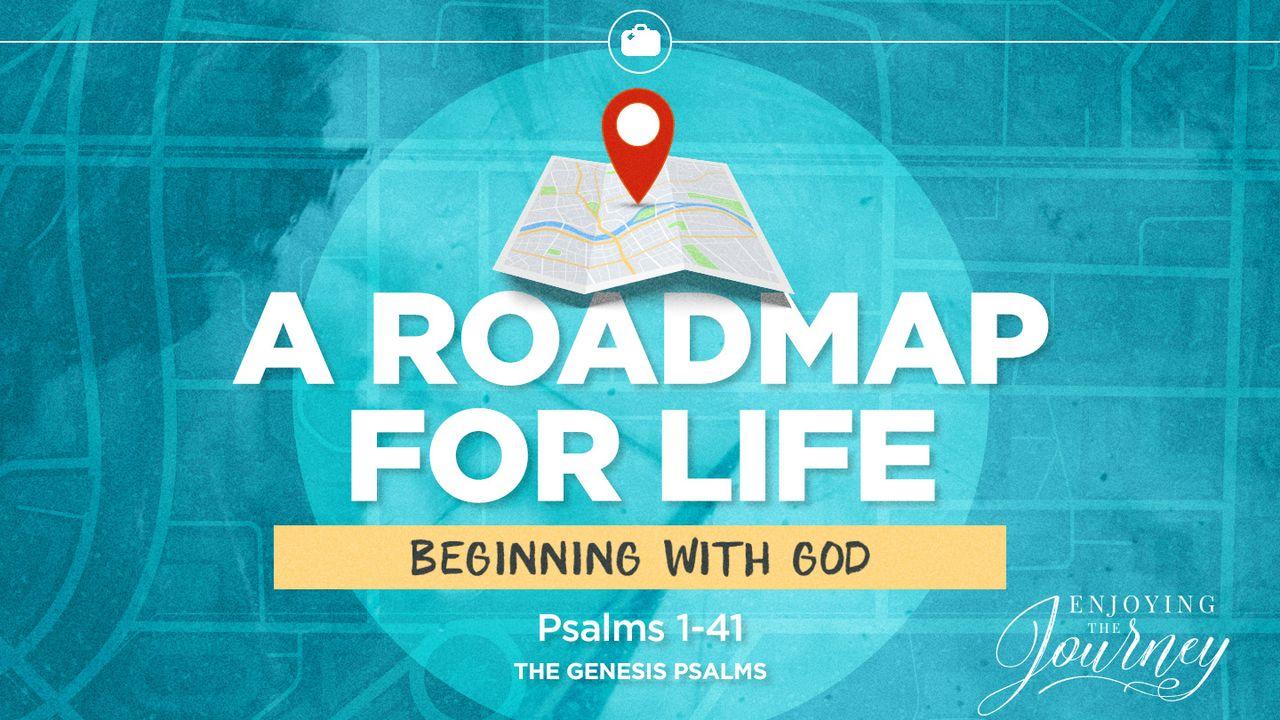
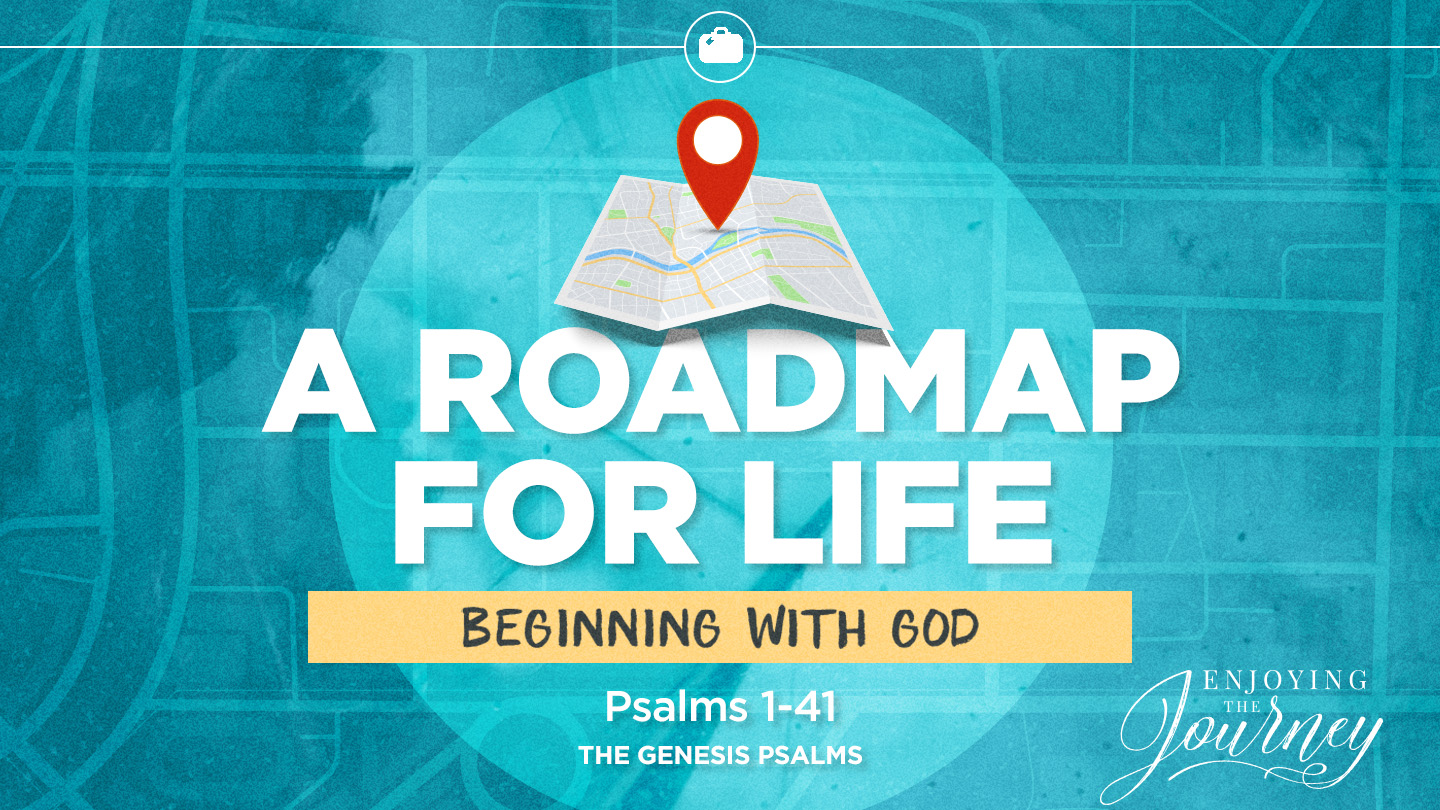
5 BOOKS, 150 PSALMS, 1 GOAL
What is your go-to book of the Bible when you need encouragement, direction, or help? Where do you turn?
That probably is different for everyone but I would say that the number one answer I hear from most people is the Psalms. I remember years ago hearing a friend say that we pillow our faith in the Psalms. There is a great rest, a great sense of God's presence as we read the great psalms of the Bible.
The book of the Bible by that name contains 150 distinct psalms, and they are all unique, yet they are all the same. They are unique in the sense that they deal with every range of human emotions and experiences from the highest mountain to the lowest valley, from jubilation to great discouragement. It's really wonderful because it shows us that at every stage and season in life, every struggle in life, you can bring it to God: “Casting all your care upon him, for he careth for you” (I Pet. 5:7). No matter who you are, where you are or what you're dealing with today, you can usher your emotion and your experience into the presence of God.
There are many different ways to approach the Psalms. One is by their subject matter. For example, you can group them together based on a theme. Some are instructive. Some are historical. Probably some of the most famous psalms are the latter ones which are called the “Hallelujah Psalms.” There are some that are confessions of sin. Some are prayers, and others are psalms of thanksgiving.
Some of my favorites are the messianic psalms, the ones that are connected to the coming of Christ — His prayers, His suffering, and descriptions of the Lord that was to come to Earth. Others are nature psalms or prayers against God's enemies.
You could also approach them by who wrote them. We know the majority of them were written by David. Some are written by Asaph or Solomon, and there are other writers. Moses even wrote one of them, Psalm 90.
About 50 or 51 of them are anonymous. I've always thought that was really beautiful, that we don't know who wrote them. We know, of course, that they were inspired by the Holy Spirit, but God has made it so that all of them are really the expression of every man, every heart that truly cries out for God.
You could study the Psalms by their titles. Several of them have distinct titles that are associated with them. But the way I want us to approach the Psalms in this study is in the order that they are arranged for us in scripture, in their sequence.
Did you ever notice as you went through the Psalms that they're divided into five sections? You can look and you'll see books one through five. And they're grouped together in this way.
The old Jewish rabbis called them the Pentateuch of David, and they actually referred to them as the Genesis Psalms, the Exodus Psalms, the Leviticus Psalms, the Numbers Psalms, and the Deuteronomy Psalms. And in some way, each section does seem to correspond with one of the first five books of the Bible. The key thoughts seem to parallel. It is fascinating.
But here is a simple thought that I want to use as a launching pad for our study. I believe that the book of Psalms is God's road map for our life. We all need direction and help along the journey. This book provides that.
The first verse of the first chapter begins, “Blessed is the man …” Don't you love the fact that God begins with blessing? If you want the blessing of God upon your life today, I would suggest to you that the Psalms show us the way to the blessing, guiding us into the blessed presence of God.
At the end of each section of the book of Psalms, there is a hymn of blessing. But look closely. It is not a prayer that God would bless us. Rather, it is a hymn of praise to bless God. When was the last time you blessed the Lord, not asking Him for anything but just praising Him for who He is?
There is a doxology, if you will, at the end of each section. Let me show you what I mean.
- The first section is Psalms 1-41. These are referred to as the Genesis Psalms. Here are the words of the final verse, Ps. 41:13. “Blessed be the Lord God of Israel from everlasting, and to everlasting. Amen, and Amen.” There are a lot of superlatives in that verse. It leads us to a place where we can just bless the Lord, and give Him praise and glory because He is worthy of it all.
- The second section is Psalms 42-72. These are referred to as the Exodus Psalms. It concludes in Psalm 72:18-20 with these words: “Blessed be the Lord God, the God of Israel, who only doeth wondrous things. And blessed be his glorious name forever: and let the whole earth be filled with his glory; Amen, and Amen. The prayers of David the son of Jesse are ended.” Once again, we are blessing the Lord.
- The third section is Psalms 73-89. These make up the third book, the Leviticus Psalms. Notice Psalm 89:52, “Blessed be the Lord for evermore. Amen, and amen.”
- The fourth section is Psalms 90-106. These comprise the fourth book, the Numbers Psalm. At the end of the Numbers Psalms, we find that Ps. 106:48 says, “Blessed be the Lord God of Israel from everlasting to everlasting: And let all the people say, amen. Praise ye the Lord.”
- Then we come to the great crescendo, the Deuteronomy Psalms, the fifth section - in Psalms 107-150. Consider Psalm 150 in its entirety; all six verses:
“Praise ye the Lord, Praise God in his sanctuary: Praise him in the firmament of his power. Praise him for his mighty acts: Praise him according to his excellent greatness. Praise him with the sound of the trumpet: Praise him with the psaltery and harp. Praise him with the timbrel and dance: Praise him with stringed instruments and organs. Praise him upon the loud cymbals: Praise him upon the high sounding cymbals. Let every thing that hath breath praise the Lord. Praise ye the Lord.”
This is not just for Israel, this is for anyone who is breathing. Are you breathing today? Take a moment right now and just praise God.
Remember, the book of Psalms deals with every experience and emotion in life. You do not just pray your way through this journey. You must learn to praise your way through it as well. Lester Roloff said, “Sometimes you can praise your way through things you can't pray your way through.” Maybe that is where you are today.
The Psalms begin with blessing for us. But the blessed life is the life that learns to bless the Lord. The happy man is the man who knows how to worship. The person who enjoys life the most is the person who's learned to give God praise and glory.
The first five books of the Bible, from Genesis through Deuteronomy, were written from the perspective of Jehovah to the congregation. But the five books of the Psalms were written from the perspective of the congregation to Jehovah.
Would you take the Psalms in the days to come and turn them around, send them back to Heaven, and learn to bless the Lord forevermore?
Resource: Be sure to print out this "Ready Reference of the Psalms." It will serve as a helpful guide through this study.
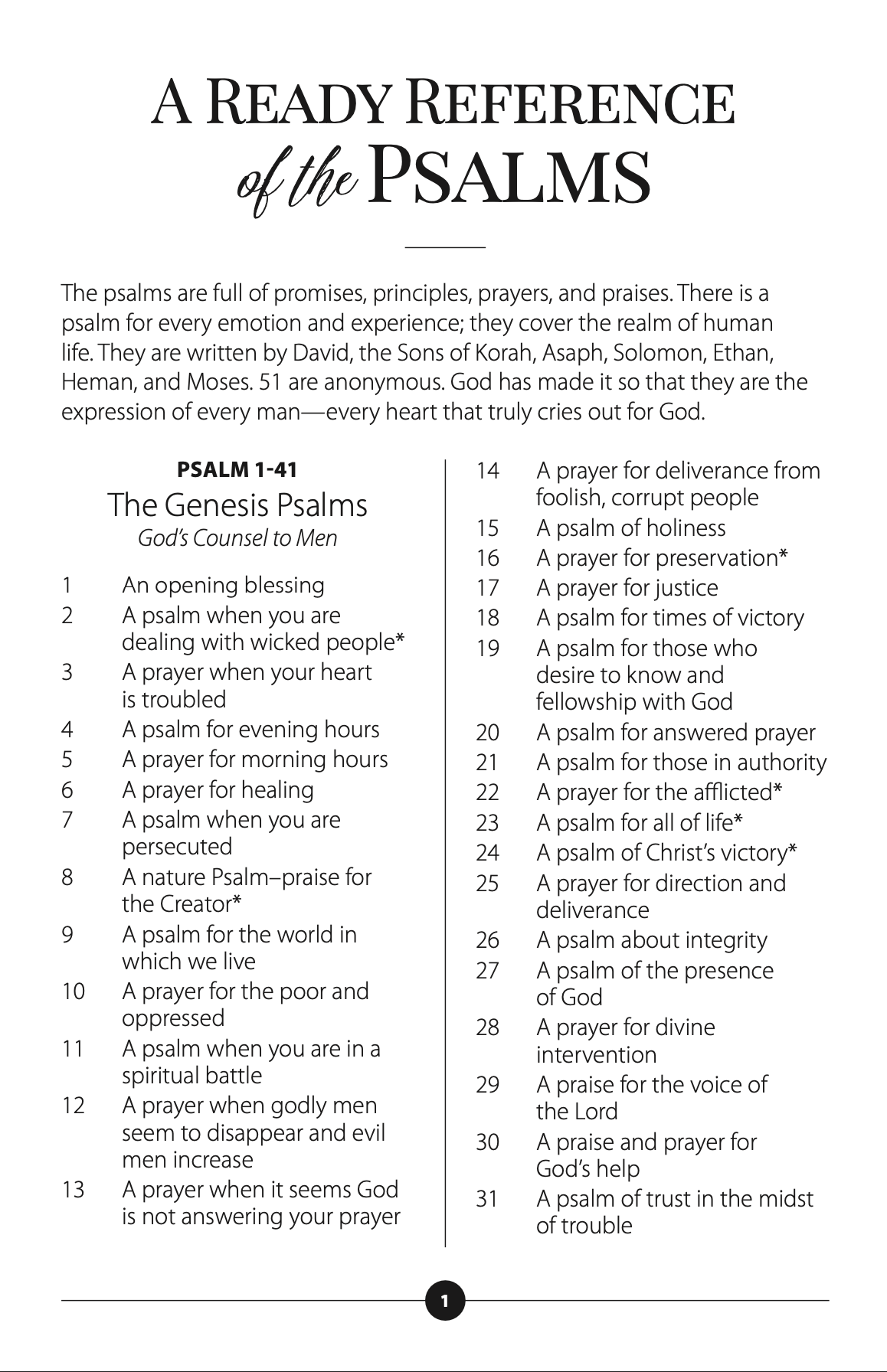
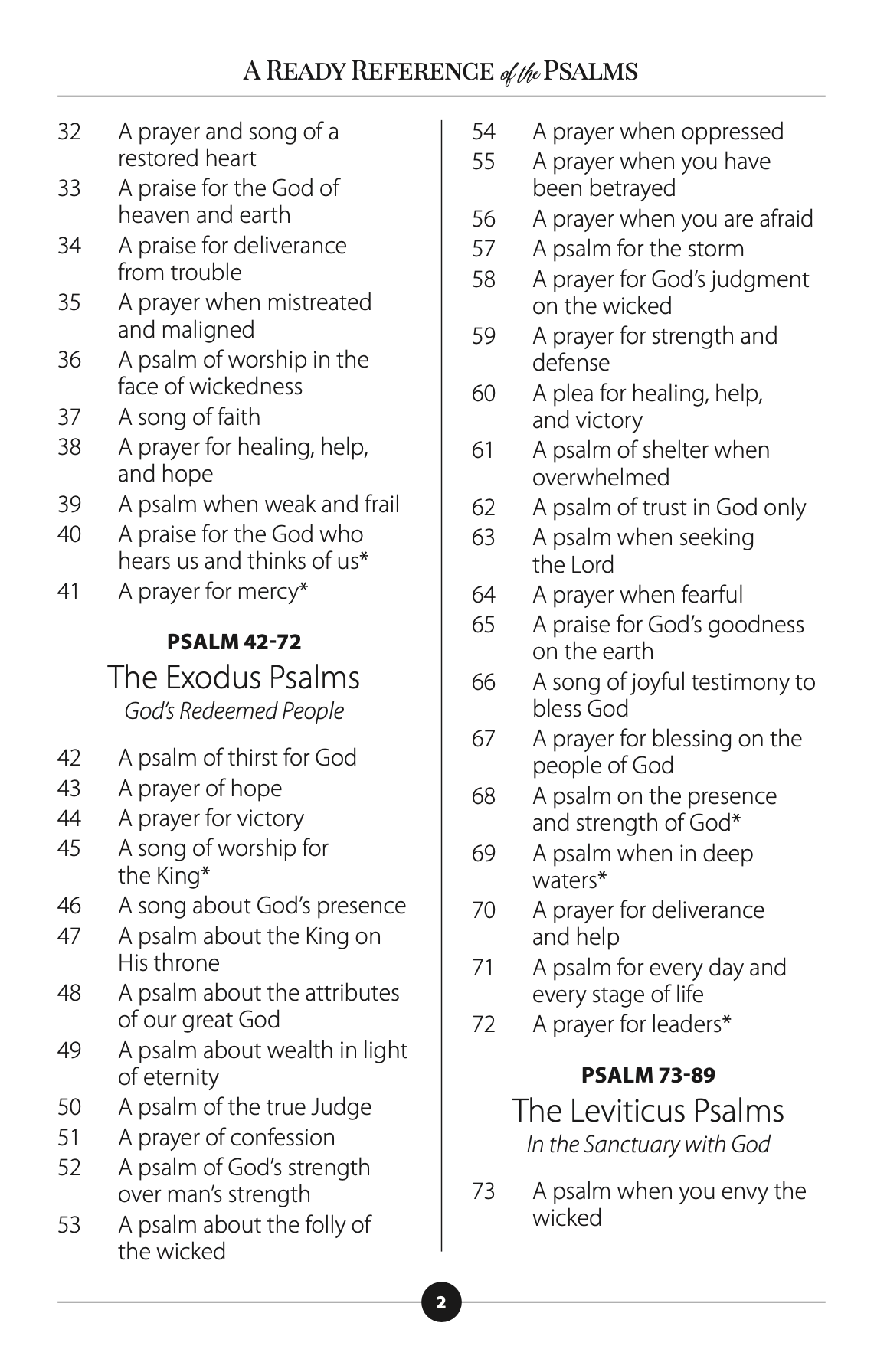
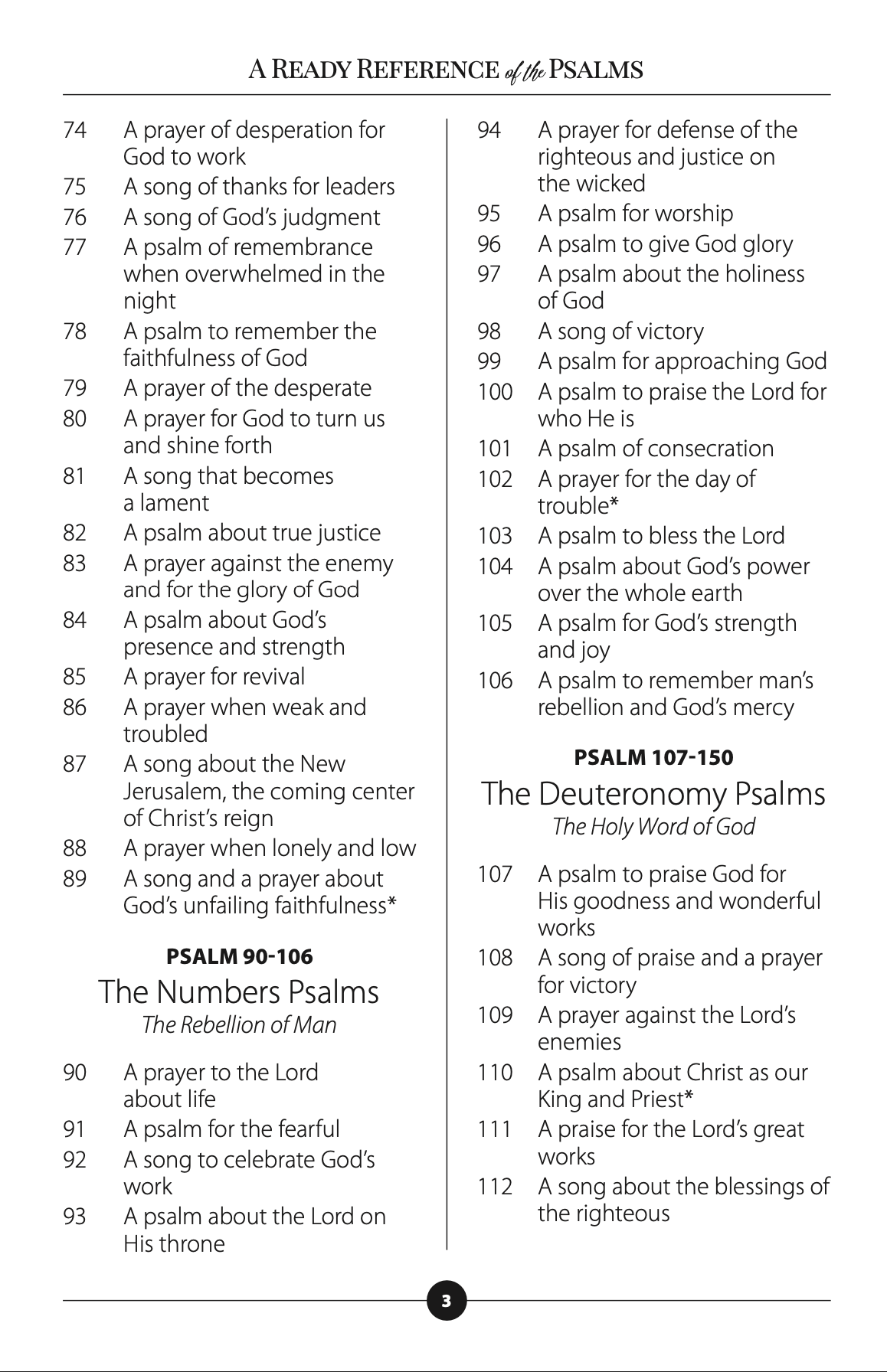
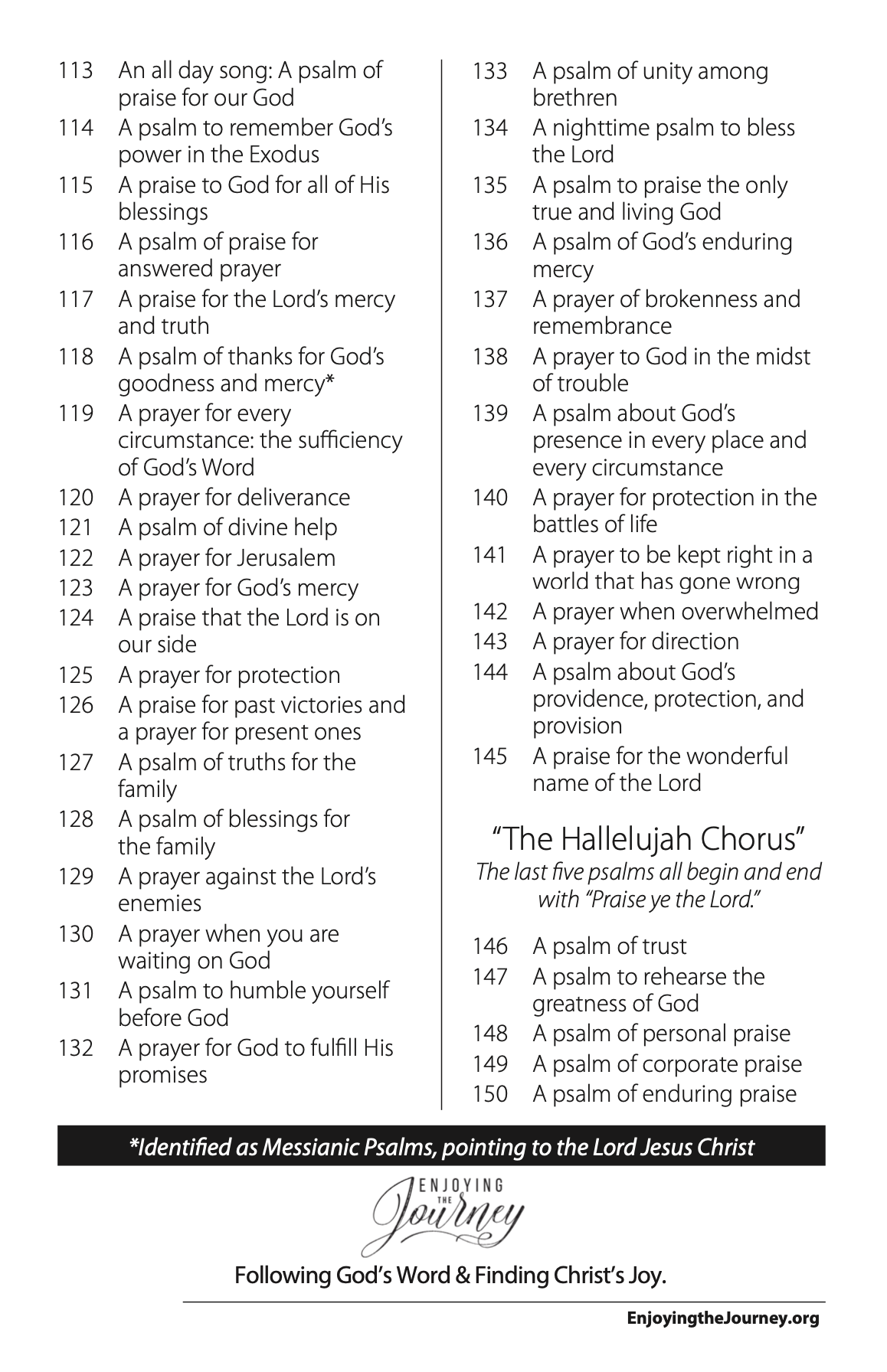
About this Plan

The Psalms are actually five books in one. Each section of the Psalms connects to one of the first five books of Scripture and holds something special for us. This study covers The Genesis Psalms (Psalms 1-41). Join us as we uncover God's message to you in the Genesis Psalms!
More
We would like to thank Enjoying the Journey for providing this plan. For more information, please visit: https://enjoyingthejourney.org









